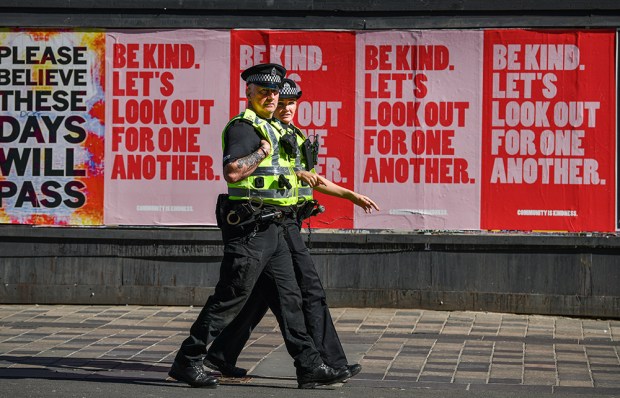It’s easy to see why the Labour party tried so hard to avoid this general election. They looked certain to be crushed, as their Remain-voting supporters defected to the Liberal Democrats and the Brexit vote cohered around the Tories. In Boris Johnson, the Tories had a proven election winner; in Jeremy Corbyn, Labour had the most unpopular opposition leader in the history of opinion polling. The election ought to have been a fairly easy fight.
Instead, the Tories found the Labour vote rising relentlessly and their own poll lead falling — which, to all too many Conservatives, seemed to defy the laws of political gravity. Didn’t people know that Corbyn is a terrorist sympathiser who associates with anti-Semites? That his economic policies were a dangerous fantasy that would ruin the country? That most of his MPs think him unfit for office? But these attacks didn’t seem to land.
The positive case for Conservatism was not very well made. The Tories at times seemed to lack emotional literacy, struggling to defend themselves over social justice issues, attacked over food banks and homelessness. Most of the attacks were nonsense: the lowest-paid have seen their position improve the most since 2010, and severe material deprivation has fallen by a fifth since then. But if no one makes these points in government, then no one will believe them during elections. Barking statistics at voters will win neither hearts nor minds.
The social media era made the campaign far harder for the Tories. There was a time when election news was limited to TV bulletins and the arrival of the morning papers. Now, it is a 24-hour-a-day rumble which is hard to escape. Another unfortunate development is the widening gap between ordinary people and the political class. Superficially, this election has seen party leaders submitting themselves to greater public scrutiny; there has been an explosion in the number of TV debates in which they are prepared to take questions from members of the public — even if in reality these are often political activists in disguise.
Yet for an ordinary voter, the chances of meeting a candidate in the street or on the doorstep are greatly diminished compared with elections a generation or two ago. Campaigning is now carried out much more by remote control, by targeted tweets and Facebook ads. This has not endeared our current generation of politicians to the people. But to be fair to them, the growing gap between politicians and the public is not entirely a one-way thing — candidates have good reason to fear violent encounters, and have restricted their appearances to carefully stage-managed events.
Just as the gap between politicians and the people has widened, so too has the political gulf between voters. Allegiances have become less tribal in some ways, in that Labour and Conservative supporters are no longer so closely defined in terms of social class. But politics has fractured along new fault lines, in which age and education are the main defining features. Brexit has created a sense of sectarianism not previously encountered on the British mainland.
We have heard plenty from candidates over the past few weeks about how they are going ‘to bring the country together’, but rather less in the way of explanation as to how they hope to achieve this. The general impression is that various factions have been awaiting victory in the great battle of Brexit, and hope that thereafter the losing side will come quickly round to accept their point of view. To judge from the aftermath of the 2016 referendum, this is a bold hope.
Democracy only works, of course, if people are prepared to accept the result of elections and referendums, however much they regret them. The country can only start to come together if, this time around, all refrain from trying to dispute the legitimacy of the result. But that is not going to be sufficient. All those in politics have to accept that in future they are going to be held to much higher standards of factual accuracy than has been the case in the past. Thanks to the internet it has become far easier to check what is true and what is not, and in seconds. For a politician to complain about social media is like a ship’s captain complaining about the sea.
There is no reason why the quality of arguments employed during election campaigns should be so low. There is nothing wrong with slogans, but when they are repeated ad nauseam they begin to grate — and voters rebel. The belief that voters are only capable of absorbing simple ideas, endlessly repeated, becomes a self-fulfilling prophecy: if people start to switch off because they are bored by the campaign, then the only way to reach them really will be to bark the same things at them over and over again, until they cannot ignore them.
The past three and a half years have been a bruising experience; the past few weeks especially so. We have lost good people from politics not through defeat at the ballot box but through disillusionment. It is now the responsibility of those elected to bring harmony where there is discord.
Got something to add? Join the discussion and comment below.
Get 10 issues for just $10
Subscribe to The Spectator Australia today for the next 10 magazine issues, plus full online access, for just $10.
You might disagree with half of it, but you’ll enjoy reading all of it. Try your first month for free, then just $2 a week for the remainder of your first year.














Comments
Don't miss out
Join the conversation with other Spectator Australia readers. Subscribe to leave a comment.
SUBSCRIBEAlready a subscriber? Log in